- Serbia
Get to know Serbia
- Citizens
Culture and science
Health services
Pension and disability insurance
- Business
Employment
Economy
- Media
- Government
- Contact
Keep in touch
Contact form
Back
Keepin touch
Whether you have a question, comment, suggestion or any problem in the purview of the government, send us your message and we will try to respond as soon as possible. If your problem is not in our purview, we will forward your message to the relevant institution.
Q:
A:
Full implementation of interim trade agreement from February 1
Belgrade,
29 January 2010
Head of the European Commission Delegation Vincent Degert said today that the full implementation of the interim trade agreement between Serbia and the EU will start from February 1, which will ultimately lead to the creation of a free trade zone over a period of six years.
Speaking at a press conference Degert said that Serbia started the unilateral implementation of the agreement on February 1, 2009 and that the EU introduced customs free export from Serbia to the EU in 2000, except for certain groups of products.
He explained that the new element is that now Serbia and the EU are governed by a contractual relationship regarding the implementation of the trade agreement, which means joint monitoring of the process of implementation and the gradual liberalisation of EU imports to Serbia.
Degert said that the first meeting of the interim trade agreement committee will be held in March, adding that the committee is a joint body of the representatives of Serbia and the EU and that they will observe the implementation of the agreement and progress in this respect.
He said that there are five key areas which are covered by the trade agreement and these are trade liberalisation, competition, intellectual property, transit transport and control of state help.
He stressed that the largest benefit that Serbia will have from the implementation of the agreement will be the establishment of predictable trade regulations and increased competition between businesses.
He said that the implementation of clear rules, in harmony with EU regulations will make Serbia more attractive for foreign investors because the authorities will not be able to make unilateral decisions, because of its contractual relationship with the EU.
The political advantage of the implementation of the agreement will be that the EU will monitor Serbia’s progress and that this will be taken into account when a decision will be made regarding Serbia’s candidacy, said Degert.
He said that during the first year of the unilateral implementation of the trade agreement Serbia made a certain amount of progress in the areas of competition protection and the allocation of state support.
Head of Economic and European integration Sector of the European Commission Delegation Alberto Cammarata said that owing to the establishment of a contractual relationship with the EU, Serbia will now have the opportunity to attract a bigger number of foreign investments, to advance its industrial production and to increase exports to the EU.
He said that he hopes that this year trade between Serbia and the EU will increase as a result of the implementation of the interim trade agreement and recovery from the economic crisis.
Cammarata said that during the first year of the implementation of the trade agreement 85% of customs duties on import of industrial produce from the EU were removed.
He explained that the new element is that now Serbia and the EU are governed by a contractual relationship regarding the implementation of the trade agreement, which means joint monitoring of the process of implementation and the gradual liberalisation of EU imports to Serbia.
Degert said that the first meeting of the interim trade agreement committee will be held in March, adding that the committee is a joint body of the representatives of Serbia and the EU and that they will observe the implementation of the agreement and progress in this respect.
He said that there are five key areas which are covered by the trade agreement and these are trade liberalisation, competition, intellectual property, transit transport and control of state help.
He stressed that the largest benefit that Serbia will have from the implementation of the agreement will be the establishment of predictable trade regulations and increased competition between businesses.
He said that the implementation of clear rules, in harmony with EU regulations will make Serbia more attractive for foreign investors because the authorities will not be able to make unilateral decisions, because of its contractual relationship with the EU.
The political advantage of the implementation of the agreement will be that the EU will monitor Serbia’s progress and that this will be taken into account when a decision will be made regarding Serbia’s candidacy, said Degert.
He said that during the first year of the unilateral implementation of the trade agreement Serbia made a certain amount of progress in the areas of competition protection and the allocation of state support.
Head of Economic and European integration Sector of the European Commission Delegation Alberto Cammarata said that owing to the establishment of a contractual relationship with the EU, Serbia will now have the opportunity to attract a bigger number of foreign investments, to advance its industrial production and to increase exports to the EU.
He said that he hopes that this year trade between Serbia and the EU will increase as a result of the implementation of the interim trade agreement and recovery from the economic crisis.
Cammarata said that during the first year of the implementation of the trade agreement 85% of customs duties on import of industrial produce from the EU were removed.
-
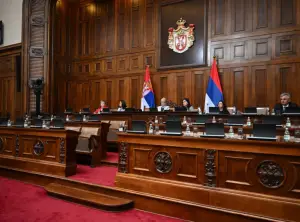 Belgrade, 7 November 2025
Belgrade, 7 November 2025Parliament adopts multiple laws
-
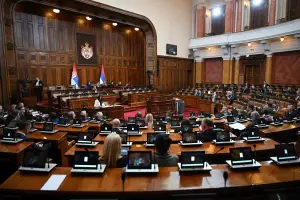 Belgrade, 22 October 2025
Belgrade, 22 October 2025Parliament adopts several laws, ratifies multiple international agreements
-
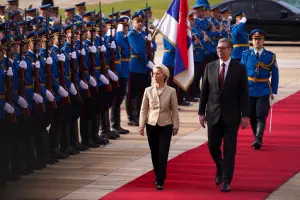 Belgrade, 15 October 2025
Belgrade, 15 October 2025Vučić welcomes Ursula von der Leyen in front of Palace of Serbia
-
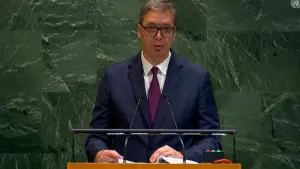 Belgrade/New York, 24 September 2025
Belgrade/New York, 24 September 2025Respect for UN Charter obligation of all countries
-
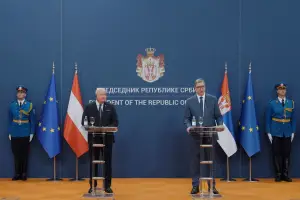 Belgrade, 13 August 2025
Belgrade, 13 August 2025High level of understanding, agreement between Serbia, Austria
-
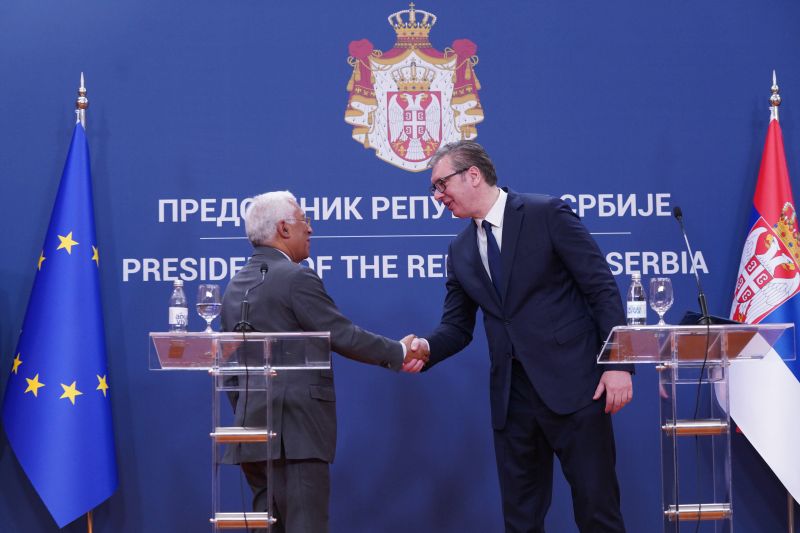 Belgrade, 13 May 2025
Belgrade, 13 May 2025Serbia's sincere, firm commitment to European path, reforms and dialogue
-
 Belgrade, 13 May 2025
Belgrade, 13 May 2025Vučić welcomes European Council President in front of Palace of Serbia
-
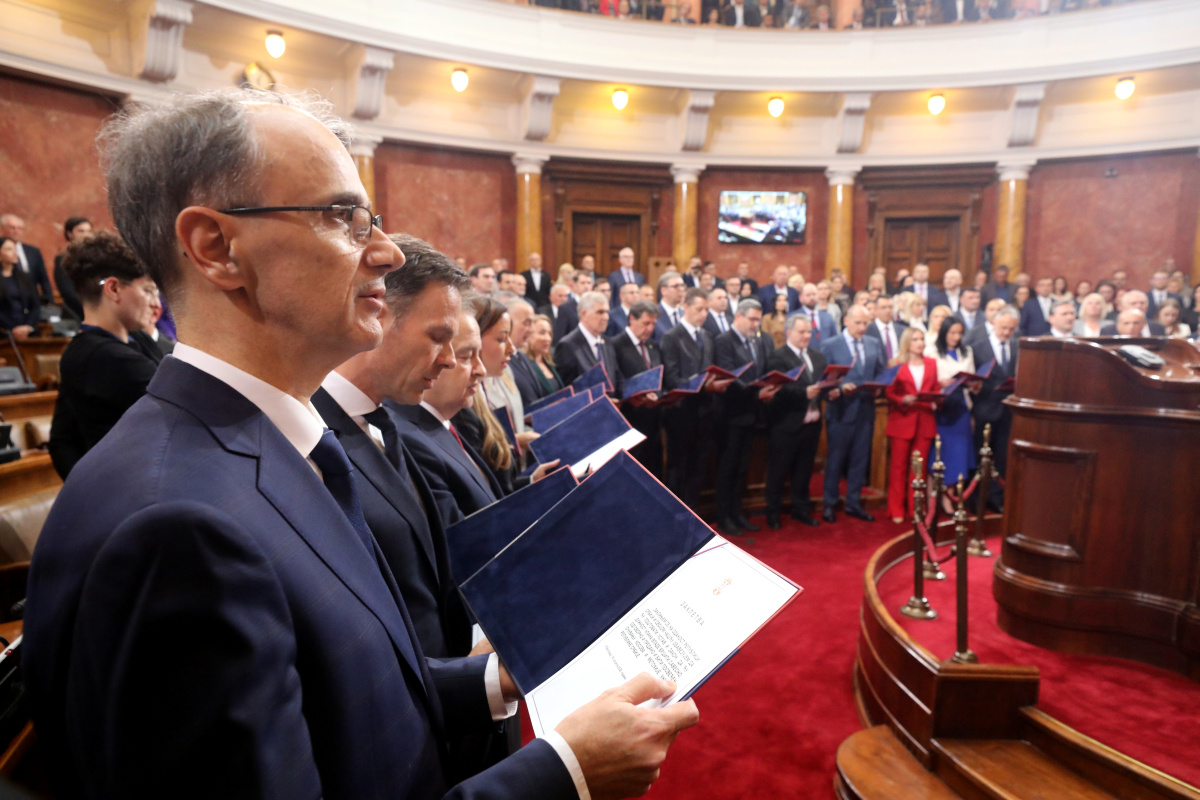 Belgrade, 16 April 2025
Belgrade, 16 April 2025New Serbian government voted in
-
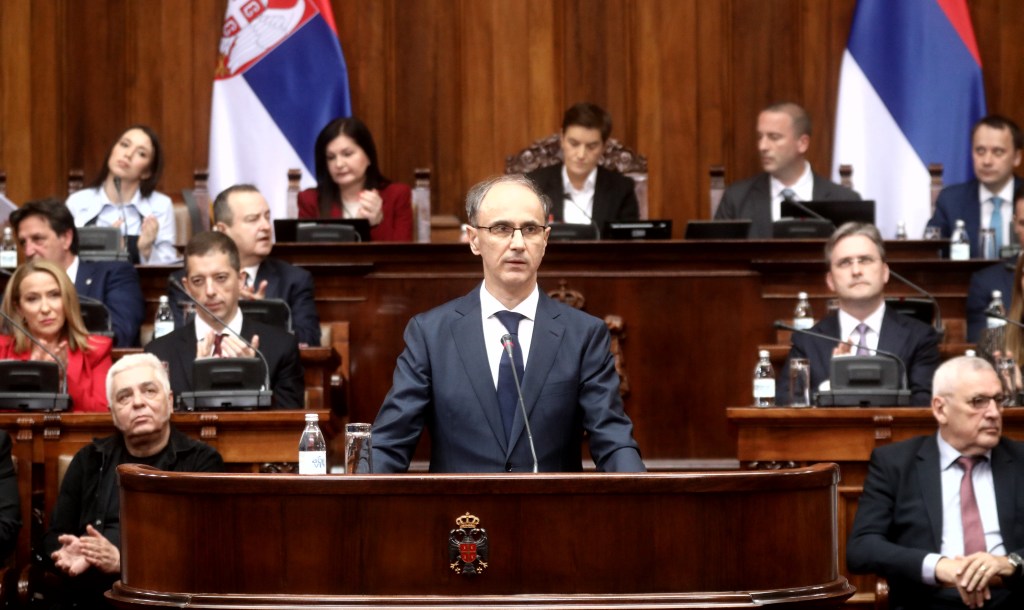 Belgrade, 15 April 2025
Belgrade, 15 April 2025Building unity through dialogue, tolerance, respect for value system
-
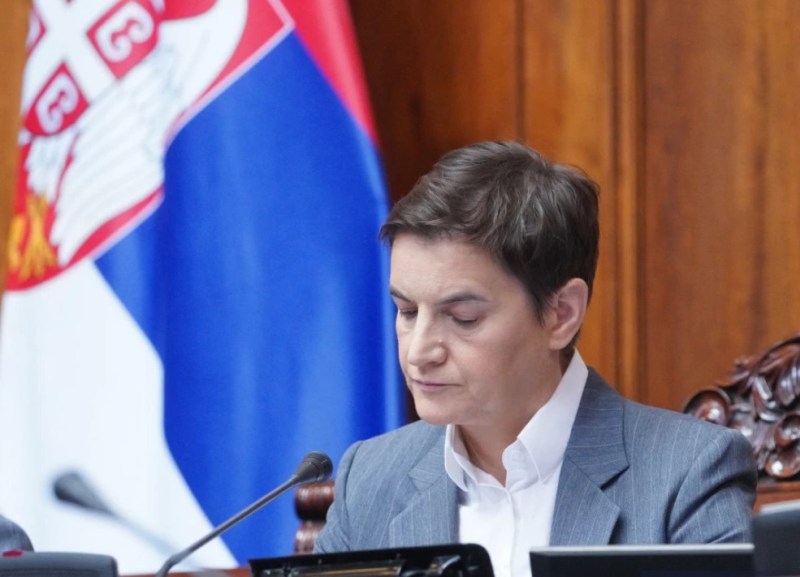 Belgrade, 14 April 2025
Belgrade, 14 April 2025National Assembly speaker convenes session on government election
